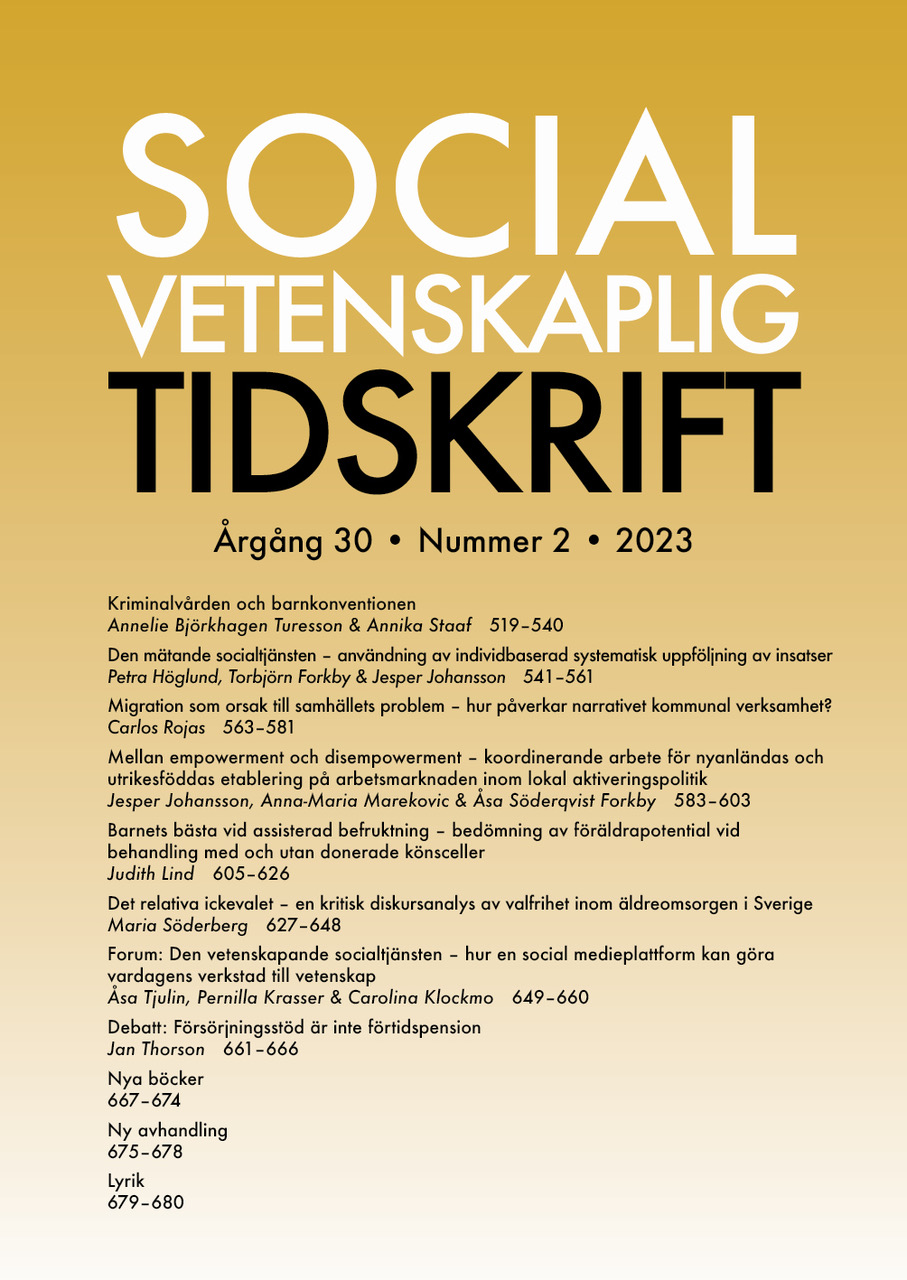Barnets bästa vid assisterad befruktning
- bedömning av föräldrapotential vid behandling med och utan donerade könsceller
DOI:
https://doi.org/10.3384/SVT.2023.30.2.4442Nyckelord:
assisted reproduction, child welfare assessment, parenting capacity, parent potential, regulation of accessAbstract
The best interests of the child in assisted reproduction – assessments of parent potential in treatment with autologous and donor gametes
Considerations of the welfare of the intended child in assisted reproduction include the assessment of candidates’ capacity to care for the child. Swedish legislation prescribes the evaluation of candidates’ psychological and social circumstances only when gametes from a donor are used for treatment. However, accounts of the evaluation process by fertility clinic staff indicate that candidates’ social and psychological circumstances are also considered in non-donor treatment. While legislation demands that a professional behavioural scientist is involved in the assessment for donor treatment, this is not the case for non-donor treatment. Candidates for non-donor treatment are reported as being evaluated by a counsellor only if they attract the negative attention of clinic staff through self-disclosed information or their behaviour during visits to the clinic. The outcome is an evaluation process in non-donor treatment that is non-transparent and therefore unpredictable for candidates. This article is based on focus group discussions with fertility clinic staff at four public clinics in Sweden.
Downloads
Publicerad
Referera så här
Nummer
Sektion
Licens
Copyright (c) 2023 Judith Lind

Det här verket är licensierat under en Creative Commons Erkännande 4.0 Internationell-licens.
Allt material i Socialvetenskaplig tidskrift publiceras sedan 2022 (Vol 28 Nr 2) med omedelbar öppen tillgång (open access), under Creative Commons-licensen CC BY 4.0. Upphovsrätten till innehållet tillhör respektive författare.
Allt innehåll i tidskriften är fritt tillgängligt utan kostnad och får fritt läsas, laddas ned, kopieras, delas, skrivas ut och länkas. När innehållet används måste författare, källa och licens anges. Författaren kan fritt göra sin publicerade text tillgänglig på institutionella och internetbaserade arkiv, exempelvis sitt lärosätes digitala arkiv eller andra tjänster för detta.
Inga publiceringsavgifter tas ut vid publicering i Socialvetenskaplig tidskrift.


